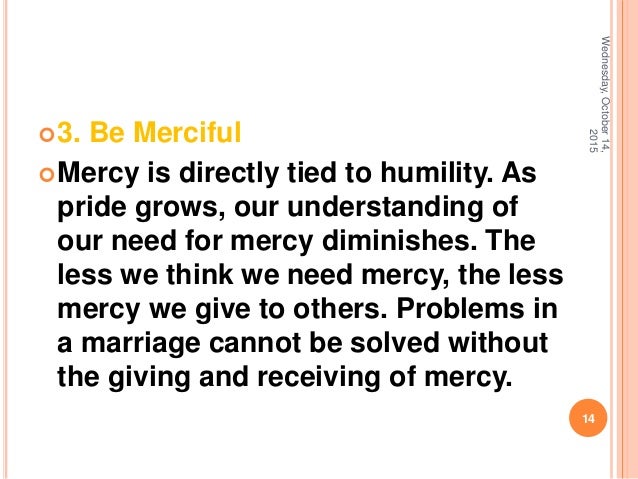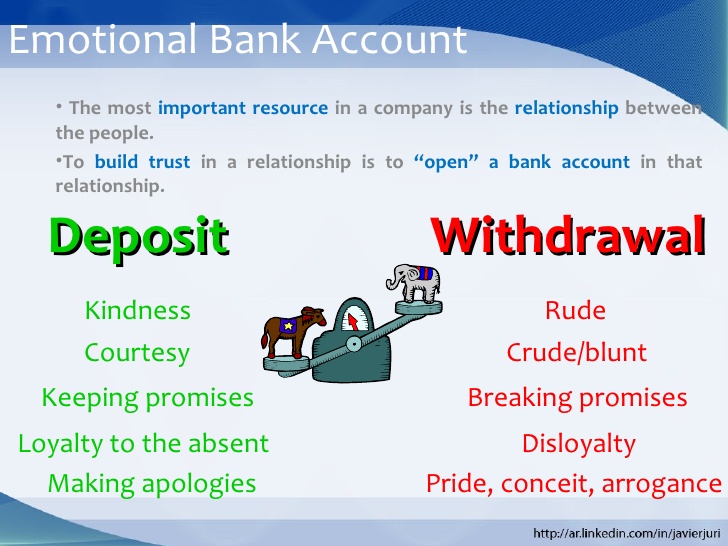“Therefore, shall a man leave his
father and his mother and shall cleave unto his wife” (Genesis 2:24). Cleaving to your spouse, is basically turning
to them, putting them as first priority in their scope of relationships. This does not mean that you exclude parents,
siblings, or friends, it just means that your spouse is your “number one.” Nothing, or no other relationship, should get
between you and your partner.


Elder
Ashton reminds us that married children should be faithful and supportive to
their spouses, but not forget their parents.
In turn, parents may need to give up previous roles they had with their
children to allow the new couple to be independent. (Harper
& Olson, 2005)
President
Spencer W. Kimball cautioned us on this subject, “Sometimes mothers will not relinquish
the hold they have had upon their children and husbands as well as wives return
to their mothers and fathers to obtain advice and counsel and to confide, whereas
cleaving should be to the wife in most things… President Kimball also suggests couples
immediately find their own home and be independent from both sets of
parents. You’ll live your own lives,
being governed by your decisions, by your own prayerful considerations” (Harper
& Olson, 2005).
When one of my friends married, her mom had a difficult time "letting go" of her daughter. She would call for "girls lunch" or to go see a movie. This put a strain on her daughter's marriage. Her daughter felt caught in the middle because she didn't want to offend her mom, but also want newly married and wanted to establish her new marriage identity. Her husband was very understanding and supportive and it all eventually worked out.
When one of my friends married, her mom had a difficult time "letting go" of her daughter. She would call for "girls lunch" or to go see a movie. This put a strain on her daughter's marriage. Her daughter felt caught in the middle because she didn't want to offend her mom, but also want newly married and wanted to establish her new marriage identity. Her husband was very understanding and supportive and it all eventually worked out.
Your
spouse is your confidant. When a couple
gets married, they need to establish a marital identity. This includes sharing information with only
your spouse, which can be very difficult for a daughter who has a very close
relationship with her mother. This must
be practiced in order for a husband and wife to begin to be the primary
confidants with each other” (Harper & Olson, 2005).
It is
the parents’ responsibility to protect their child’s “couple boundary” and help
their marital identity grow and flourish.
As parents of adult children, we
really need to remember how we felt when we married our husbands and/or wives. We need to think of what our parents and
in-laws did to help our relationships grow and what they might have done to
make things awkward, so we can avoid repeating those patterns. “It’s also important for parents-in-law to
find ways to personally build relationships with their children-in-law as
individuals. The burden of acceptance
rests with parents-in-law…. children-in-law want nothing more than to be
accepted and respected” (Harper & Olson, 2005).
Of
course, when our children get married, we want then to spend all of the special
occasions and holidays with us, however, we must realize that they are growing
a new family and they will need their space to decide how they want to run
their family. Parents need to guilt
their children less, and love and support them more. I believe this can be accomplished by taking
a step back and letting the newly married couple take the lead. Let them ask for suggestions, but ultimately
decide what and how they will run their family.

Remember, when there is a marriage in the family, there are so many new family members gained. Let’s not ruin our opportunities of getting to know wonderful people by putting unrealistic expectations on the newlyweds or family of the bride or groom. It is a wonderful opportunity to meet new people and who knows, you might find that the “in-laws” are not that bad after all.

Remember, when there is a marriage in the family, there are so many new family members gained. Let’s not ruin our opportunities of getting to know wonderful people by putting unrealistic expectations on the newlyweds or family of the bride or groom. It is a wonderful opportunity to meet new people and who knows, you might find that the “in-laws” are not that bad after all.

Harper, J. M., & Olsen, S. F. (2005). “Creating Healthy Ties With In-Laws
and Extended Families.” In C.H. Hart, L.D. Newell, E. Walton, & D.C.
Dollahite (Eds.), Helping and healing our families: Principles and practices inspired
by “The Family: A Proclamation to the World” (pp. 327-334). Salk Lake Coty, UT:
Deseret Book Company









